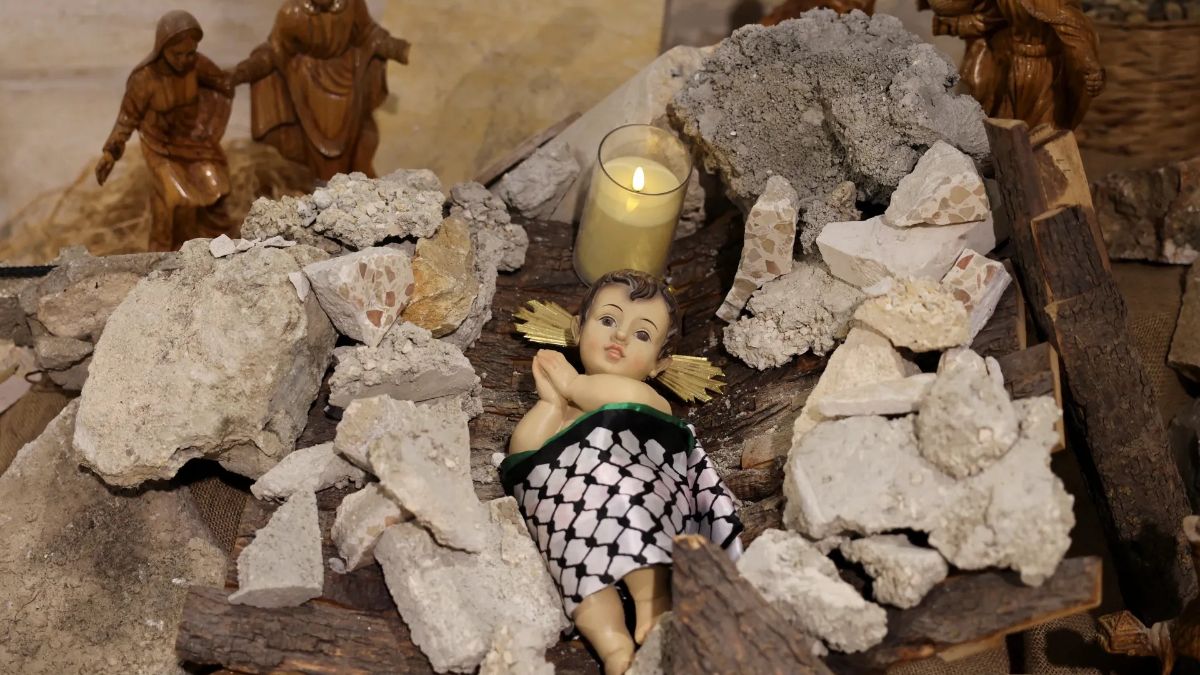A Beautiful Cluelessness
"Six days later, Jesus took with him Peter and James and John, and led them up a high mountain apart, by themselves. And he was transfigured before them,"
Mark 9:2-9
February 9, 2018, Words By: Ojii BaBa Madi, Image By: The Transfiguration-Jesus Mafa
I admit to a certain cluelessness regarding the transfiguration. After countless years of exposure to cleverly executed sermons, teachings, and writings by the best of our preachers, teachers, and scholars, I still don’t get what it was all about.
Maybe if I knew more about the conversation between Jesus and the old prophets, Moses and Elijah, I could grasp it. Or if I understood the finer details of the ways Jesus’ appearance was completely changed, then it would make sense? Or maybe if I heard the words Jesus uttered after the father spoke from heaven, “Listen to what he says,” then I might come close to understanding the meaning of this encounter among the summits of Galilee. Lacking such details, I am left to speculate.
So with that disclaimer, I’ll share my own cleverly executed sermon with you. Here it goes:
I am not sure we are meant to fully understand the significance of the transfiguration.
I mean, given what we now know of Jesus, are we truly shocked at his brightly shining face or illuminated clothing? Does the time-defying conversation with Moses and Elijah truly leave us astonished, being that, unlike the three disciples at that time, we know the fullness of his miracles, including his resurrection and ascension? So perhaps, more significant than the meaning of the transfiguration, in all its details, is the presence of Peter, James, and John throughout the process—the simple fact that they were invited in.
Peter seems to share my cluelessness, but with special beauty added to his befuddlement. He was terrified along with his friends, and in fear, we see him babble about building tabernacles. Yet, he proceeds in clueless innocence to proclaim, “Master, it is good for us to be here.” The proper use of the Greek “kalos” (good) in the text, translates to beautiful. Thus, while the frightened Peter clumsily searches for a suitable response to things far beyond his grasp, he can’t help but express his joy in just hanging with Jesus. I hear Peter speaking from his heart saying, “I don’t know what in the world is going on but It’s just beautiful that we are here with you.”
Peter and his friends were “road dogs” who would have traveled to any dangerous place, or embraced any risky situation, just for the sake of hanging with Jesus. Although they weren’t yet prepared to lean in and skillfully engage in a big conversation, they enjoyed the gracious invitation—to be participants in an authentic community process of table setting and menu planning.
One of the common points of commiseration in lowly communities such as mine is our exclusion from big conversations. The powerful and privileged among us tend to leave us and ascend to the summit to talk amongst themselves; when they finish, they descend to declare whatever we must ultimately agree to. A menu is predetermined, and a table set as we are summoned to obligingly dine. During such meals, lofty words like family, partnership, community, and friendship are effortlessly thrown about. Jesus exposes this not-so-beautiful dynamic by walking with three fearful and clueless friends to the summit, connecting them to the deep spiritual mysteries of time, space, and divinity—the big conversation.
Undaunted by his disciple’s fearful reactions, Jesus continues throughout the Gospels to invite and compel his followers to be part of the big conversations, doing so with the confidence that we will eventually gain the skills to lean in and engage. He brings us face to face with increasingly complex and compelling questions, individuals, dilemmas, and symbols, leading to the ultimately complex symbolism of the cross. He allows all of us to partake in the beautiful befuddlement. In fact, he’s the one who drags us into it.
In opposition to a society that cluelessly boasts of friendship among the lowly poor they exclude from the big conversation, Jesus demonstrates true friendship and declares his inclusive commitment, “I no longer call you servants, because a servant does not know his master’s business. Instead, I have called you friends, for everything that I learned from my Father I have made known to you” (John 15:15).
Maybe I don’t need to understand all the beautifully befuddling aspects of the divine conversation. Maybe it’s enough to be invited as a clueless participant to the conversation, and to know that I sit at the table as a friend.
May we all remember that the table is set, the conversation is lively and beautifully befuddling, and we are all invited to participate as the equally clueless friends of the most high who became low.



